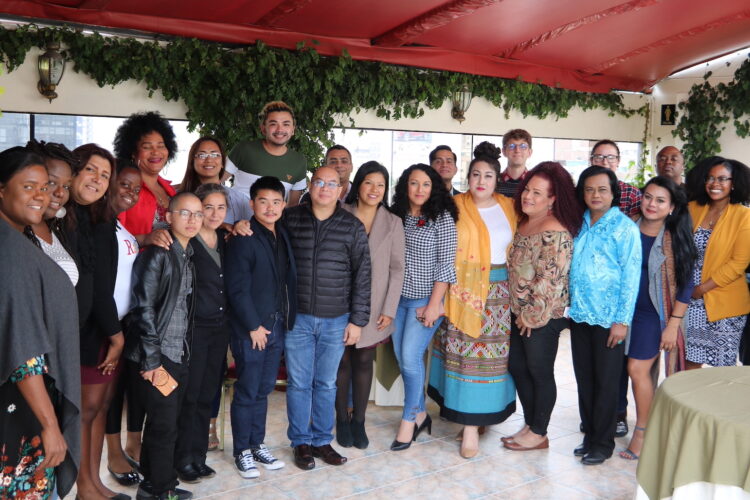GATE’s Community Engagement Strategic Initiative (CE-SI) Project (previously known as the Community, Rights and Gender Strategic Initiative (CRG-SI)) aims to enhance the meaningful participation and inclusion of trans and gender diverse (TGD) communities in national HIV, malaria and tuberculosis responses. This project began in January 2018 and has continued to be funded through consecutive projects to date.
- In the first project, from 2018-2019, GATE worked with community-led organizations based in 10 countries: Belize, Dominican Republic, Guyana, India, Philippines, Nepal, Nicaragua, Peru, Thailand, and Vietnam.
- There was an interim project in 2020 to respond to the COVID-19 crisis, in which work was focused on the Global Fund’s COVID-19 Response Mechanism (C19RM), in addition to an extension of the first project into two additional countries: Kenya and Uganda.
- In the second project, from 2021-2023, GATE worked with community-led organizations based in 7 countries: Cambodia, Thailand, Kenya, Tanzania, Uganda, Ukraine and Zambia.
- The third funding cycle, from 2024-2026, is currently underway, and GATE is working with communities based in 3 countries: Nepal, Uganda and Zimbabwe.
Project Goals
The project aims to give transgender communities in these countries the opportunity to develop links with each other and the broader set of key populations, as well as with policymakers and service providers engaged in the HIV, TB and malaria responses and health systems. The project will also strengthen connections between the TGD-led organizations and the Global Fund’s Community, Rights and Gender Regional Learning Hubs: Asia-Pacific (APCASO); Anglophone Africa (EANNASO); Eastern Europe and Central Asia (EHRA); Francophone Africa (RAME); Latin America and Caribbean (Via Libre) and Middle East and North Africa (ITPC-MENA).
The objectives of this multi-year project include:
- Amplify the participation and voice of trans and gender diverse (TGD) communities in policy and decision-making for and in governance and stewardship of national HIV responses;
- Strengthen the influence of trans and gender diverse communities in the design and implementation of national HIV strategies so that they adequately reflect and respond to community realities and needs;
- Strengthen community-led organizations and their ability to conduct advocacy for legal (gender) recognition and access to health rights for trans and gender diverse persons; and
- Produce knowledge and resources for use in evidence-based advocacy.





